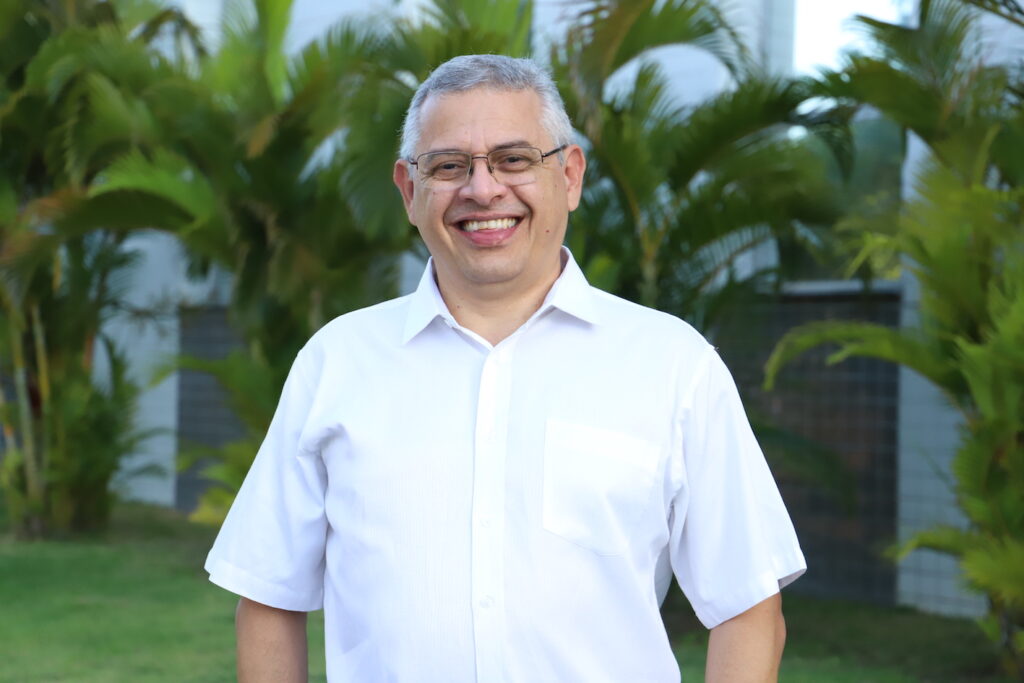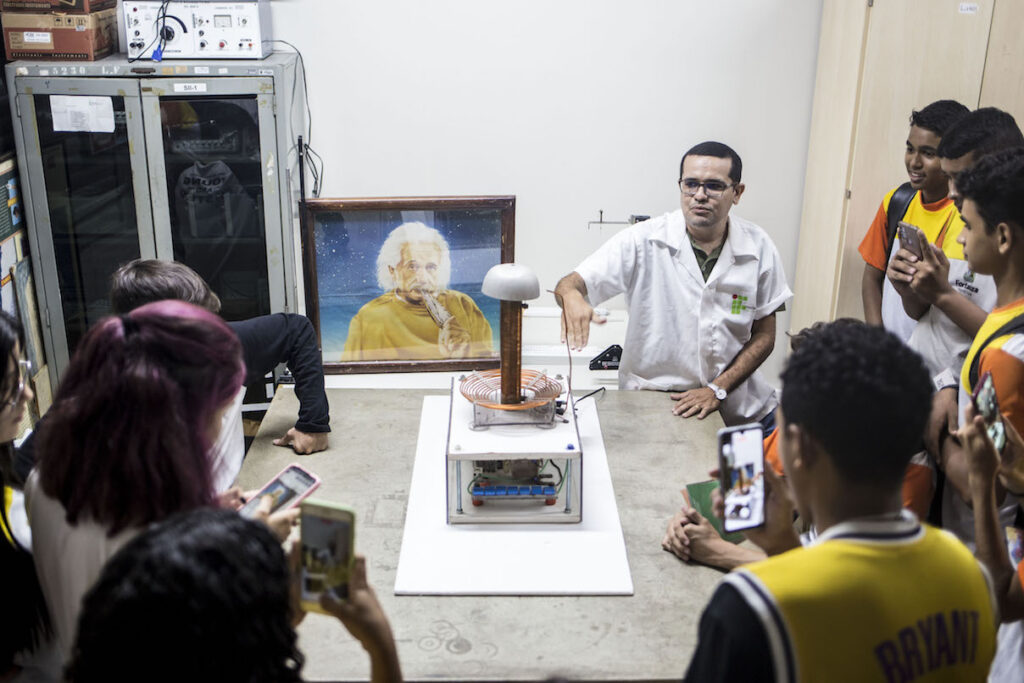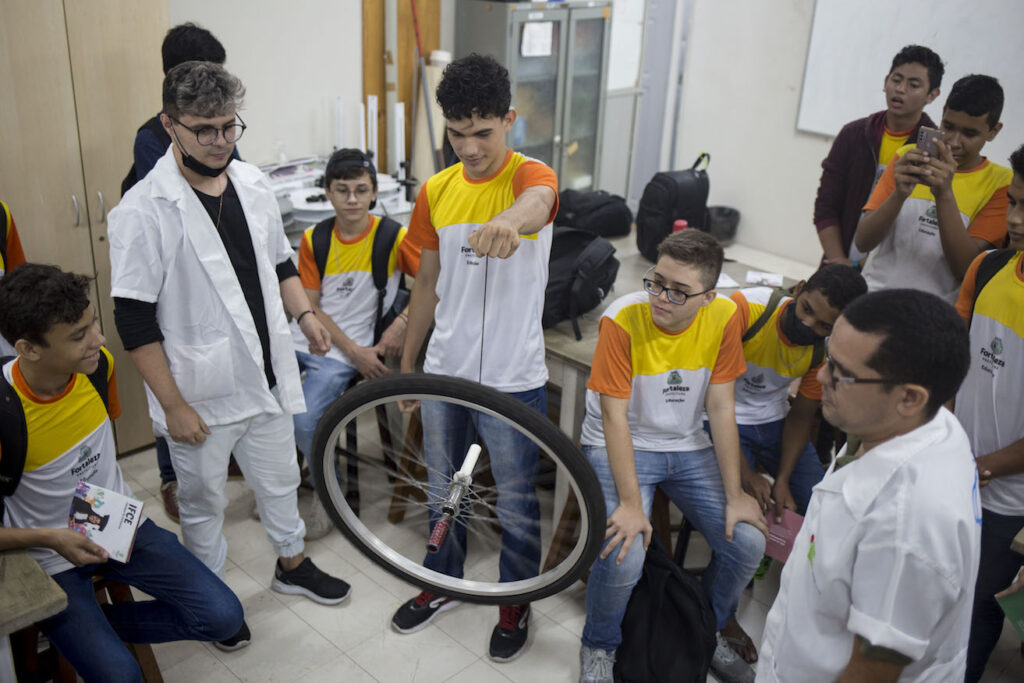Interviews
Wally Menezes (IFCE): Future Vision
19:32 24 de November de 2022 Por Daniel Oiticica

Wally Menezes, Rector of IFCE
It is from the Federal Institute of Education, Science and Technology of Ceará (IFCE) where most of the transformations and advances in Ceará originate to encourage a thriving economy, which meets the needs of transformation and sustainable growth. Created on December 29th, 2008, through the integration of the Federal Center for Technological Education of Ceará with the Federal Agrotechnical Schools of Crato and Iguatu, linked to the Ministry of Education, the IFCE is a self-governing institution of a legal nature, with administrative, patrimonial, financial, didactic-pedagogical and disciplinary autonomy. In this interview Wally Menezes, Rector of IFCE, highlights the importance of the institute for Ceará in the training of talents and analyzes the economic and social development of the State.
What benefits does the IFCE provide for Ceará’s society?
The IFCE goes much further than just education and capacity building. Besides training, development, creating educational perspectives, the IFCE allows the internalization and appropriation of knowledge throughout Ceará, not only in the state’s large centers. This is the model that will allow a social, financial, technological and economic progression, with the development of the local economy, establishing of talents, growth opportunities, and access to a transformative education that generates more than just jobs. We generate society’s capacity to undertake and stimulate national and international business.

How do you evaluate Ceará’s current moment in its economic and social development?
The current situation in Ceará is the result of several factors. The first of them is related to need. We have always had many difficulties with the issue of living in a semi-arid region. Difficulty, even, to accept ourselves as citizens, because often we were seen as a burden for Brazil. This has given us what we popularly call ‘resilience’. We have learned to do a lot with little. Consequently, this learning led us to plan, to exercise a vision of the future. This represented a major transformation in thinking about more comprehensive growth policies. It all started, firstly, with the fight against malnutrition that earned us several awards and recognition. Then, we started to project the management of public resources in education, and this was the great turning point. Another major turning point was the will to create a state policy, thinking not only about Ceará, but also with an international view. We had a need, which taught us to work with little, to seek efficient results with few resources, and that, even after the crises, allowed us to achieve expressive results.
Many new opportunities are arising in Ceará.
What used to be more costly for us, such as solar intensity and the issue of our semi-arid region, is today what allows us to achieve great economic transformations, with renewable energies, wind, solar, offshore wind, besides hydrogen in all its colors. We have a biomass economy, the vegetation part, and living in a semi-arid region, respecting the caatinga and treating desertification. And we also generate great research. Two hydrogen patents in Brazil are from IFCE. And when we arrived with IFCE, the municipalities were transformed, because the biggest capital with which we transform people’s lives is entrepreneurial education, focused on results and on state policies. This not only involves the energy transition part, but the technology part, such as traceability systems, agronomy, 5G, and the cloud.

How does the availability of this transformative education reflect on the quality of the workforce and the insertion of young people in the job market?
Today, we have students who, in the interior of Ceará, are programming for Australia, Meta, Apple, Samsung, LG and other large international institutions. I feel as if we are transforming Ceará into a Silicon Valley. We produce educational tracks that allow people to transform their social, human and holistic life.
How do you see the future of Ceará?
We have a vision of the State that is concerned with people, not just with the possibility of attracting business. We have learned to do a lot with little and we can’t lose that imprint. When we look at Ceará, we see that it can sustain the country alone in terms of energy. We have the digital belt, where the submarine cables start. My vision of the future is connectivity, in which we can transform cities from a technological point of view. Another point to highlight is the importance of academia talking. Less competition and more collaboration. My vision of the future is also about collaboration.
